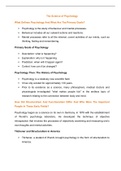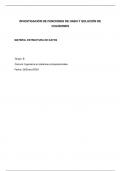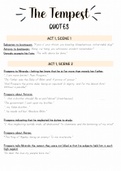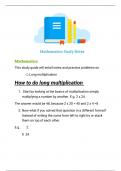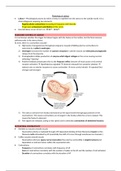The Science of Psychology
What Defines Psychology And What Are The Primary Goals?
Psychology is the study of behaviour and mental processes.
Behaviour includes all our outward actions and reactions.
Mental processes refer to all the internal, covert activities of our minds, such as
thinking, feeling and remembering.
Primary Goals of Psychology
Description: what is happening?
Explanation: why is it happening
Prediction: when will it happen again?
Control: how can it be changed?
Psychology Then: The History of Psychology
Psychology is a relatively new scientific field.
It has only existed for approximately 130 years.
Prior to its existence as a science, many philosophers, medical doctors and
physiologists investigated “what makes people tick” in the endless topic of
research relating to the connection between body and mind.
How Did Structuralism And Functionalism Differ And Who Were The Important
People In These Early Fields?
Psychology began as a science on its own in Germany, in 1879 with the establishment
of Wundt’s psychology laboratory. He developed the technique of objective
introspection that involves the processes of objectively examining and measuring one’s
own thoughts and mental activities.
Titchener and Structuralism in America
Titchener, a student of Wundt, brought psychology in the form of structuralism to
America.
, Structuralism was focused on studying the structure of the mind.
Structuralism died out during the early twentieth century.
William James and Functionalism
William James proposed a countering point of view called functionalism, in which
the way the mind allows us to adapt is focused on.
Functionalism influenced the modern fields of educational psychology,
evolutionary psychology and industrial/organisational psychology
What were the basic ideas and who were the important people behind the early
approaches known as gestalt, psychoanalysis and behaviourism
Gestalt psychology: The Whole Is Greater Than the Sum of Its Parts
Wertheimer and the others studied sensation and perception, calling the new
perspective gestalt (good figure) psychology.
Gestalt principle influenced cognitive psychology and future psychotherapy
techniques.
Gestalt psychology focuses on perception and sensation, particularly the
perception of patterns and whole figures.
Sigmund Freud’s Theory of Psychoanalysis
Freud’s theory was influenced by the sexually repressed Victorian age in which
he lived.
Freud proposed that the unconscious mind controls much of our conscious
behaviour in his theory of psychoanalysis.
Pavlov, Watson and the Dawn of Behaviourism
Watson proposed a science of behaviour called behaviourism, which focused
only on the study of observable stimuli and responses.
Much of his work was based on Ivan Pavlov’s discovery of classical conditioning.
Watson and Raynor demonstrated that a phobia could be learnt by conditioning a
baby (little albert) to be afraid of a white rat.
What Defines Psychology And What Are The Primary Goals?
Psychology is the study of behaviour and mental processes.
Behaviour includes all our outward actions and reactions.
Mental processes refer to all the internal, covert activities of our minds, such as
thinking, feeling and remembering.
Primary Goals of Psychology
Description: what is happening?
Explanation: why is it happening
Prediction: when will it happen again?
Control: how can it be changed?
Psychology Then: The History of Psychology
Psychology is a relatively new scientific field.
It has only existed for approximately 130 years.
Prior to its existence as a science, many philosophers, medical doctors and
physiologists investigated “what makes people tick” in the endless topic of
research relating to the connection between body and mind.
How Did Structuralism And Functionalism Differ And Who Were The Important
People In These Early Fields?
Psychology began as a science on its own in Germany, in 1879 with the establishment
of Wundt’s psychology laboratory. He developed the technique of objective
introspection that involves the processes of objectively examining and measuring one’s
own thoughts and mental activities.
Titchener and Structuralism in America
Titchener, a student of Wundt, brought psychology in the form of structuralism to
America.
, Structuralism was focused on studying the structure of the mind.
Structuralism died out during the early twentieth century.
William James and Functionalism
William James proposed a countering point of view called functionalism, in which
the way the mind allows us to adapt is focused on.
Functionalism influenced the modern fields of educational psychology,
evolutionary psychology and industrial/organisational psychology
What were the basic ideas and who were the important people behind the early
approaches known as gestalt, psychoanalysis and behaviourism
Gestalt psychology: The Whole Is Greater Than the Sum of Its Parts
Wertheimer and the others studied sensation and perception, calling the new
perspective gestalt (good figure) psychology.
Gestalt principle influenced cognitive psychology and future psychotherapy
techniques.
Gestalt psychology focuses on perception and sensation, particularly the
perception of patterns and whole figures.
Sigmund Freud’s Theory of Psychoanalysis
Freud’s theory was influenced by the sexually repressed Victorian age in which
he lived.
Freud proposed that the unconscious mind controls much of our conscious
behaviour in his theory of psychoanalysis.
Pavlov, Watson and the Dawn of Behaviourism
Watson proposed a science of behaviour called behaviourism, which focused
only on the study of observable stimuli and responses.
Much of his work was based on Ivan Pavlov’s discovery of classical conditioning.
Watson and Raynor demonstrated that a phobia could be learnt by conditioning a
baby (little albert) to be afraid of a white rat.

